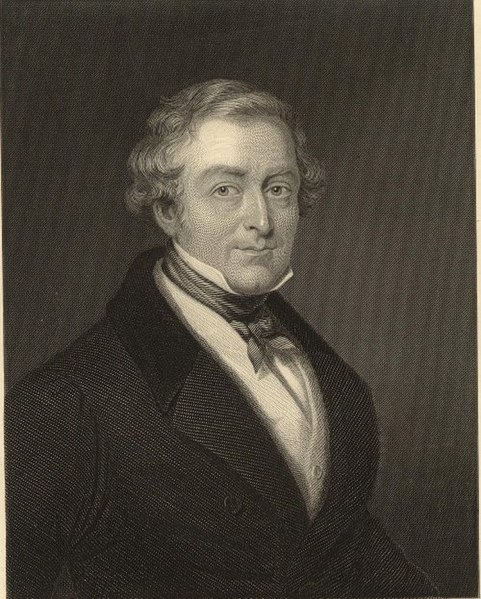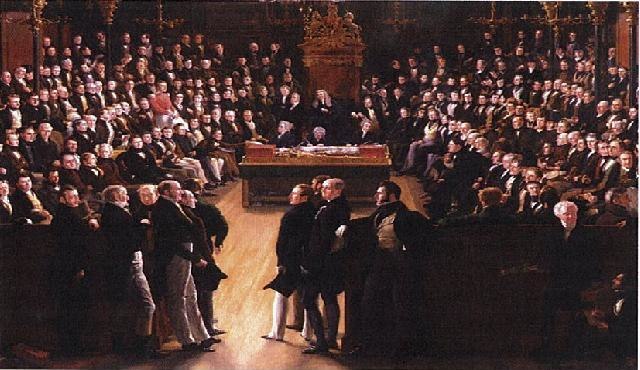The Corn Laws were tariffs and other trade restrictions on imported food and corn enforced in the United Kingdom between 1815 and 1846. The word corn in British English denoted all cereal grains, including wheat, oats and barley. The laws were designed to keep corn prices high to favour domestic producers, and represented British mercantilism. The Corn Laws blocked the import of cheap corn, initially by simply forbidding importation below a set price, and later by imposing steep import duties, making it too expensive to import it from abroad, even when food supplies were short. The House of Commons passed the corn law bill on 10 March 1815, the House of Lords on 20 March and the bill received royal assent on 23 March 1815.
The 1815 Corn Law, officially "An Act to amend the Laws now in force for regulating the Importation of Corn"
A meeting of the Anti-Corn Law League in Exeter Hall in London in 1846
Robert Peel became Conservative Prime Minister in 1841, and his government succeeded in repealing the tariffs.
United Kingdom of Great Britain and Ireland
The United Kingdom of Great Britain and Ireland was a sovereign state in Northwestern Europe that was established by the union in 1801 of the Kingdom of Great Britain and the Kingdom of Ireland. The establishment of the Irish Free State in 1922 led to the remainder later being renamed the United Kingdom of Great Britain and Northern Ireland in 1927.
The signing of the Treaty of Ghent ending the war with the United States (by Amédée Forestier, c. 1915)
A painting by James Pollard showing Trafalgar Square before the erection of Nelson's Column
Opening of the Liverpool and Manchester Railway in 1830
The House of Commons, 1833 by George Hayter commemorates the passing of the Reform Act of 1832. It depicts the first session of the newly reformed House of Commons on 5 February 1833. In the foreground, the leading statesmen from the Lords: Charles Grey, 2nd Earl Grey (1764–1845), William Lamb, 2nd Viscount Melbourne (1779–1848) and the Whigs on the left; and Arthur Wellesley, 1st Duke of Wellington (1769–1852) and the Tories on the right.







